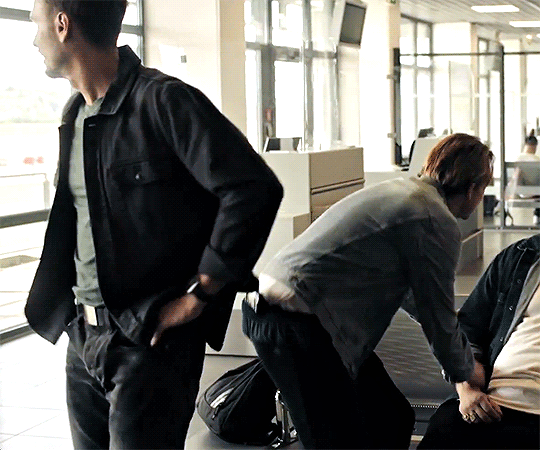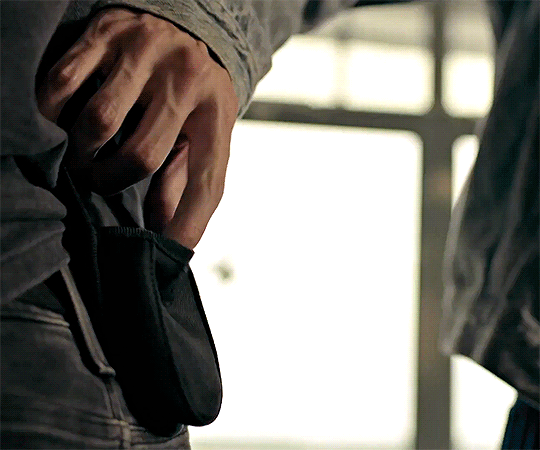Text
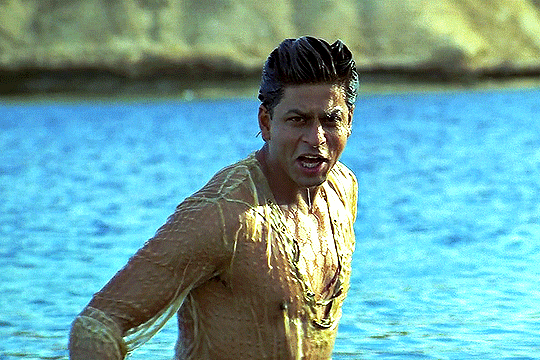
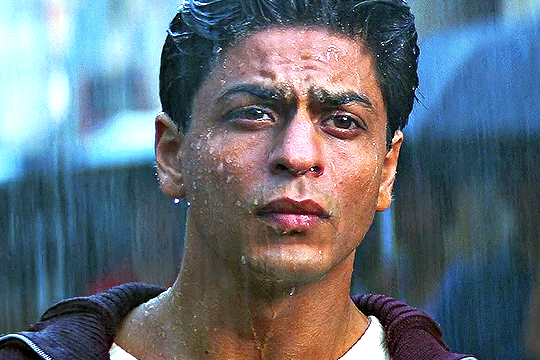



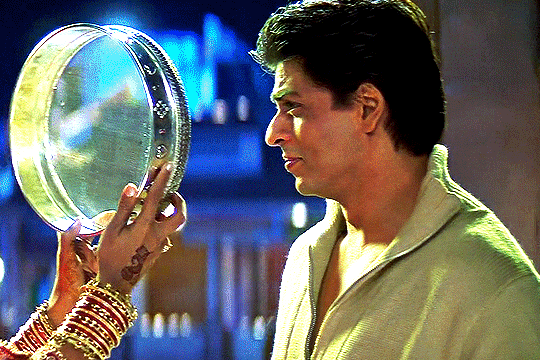

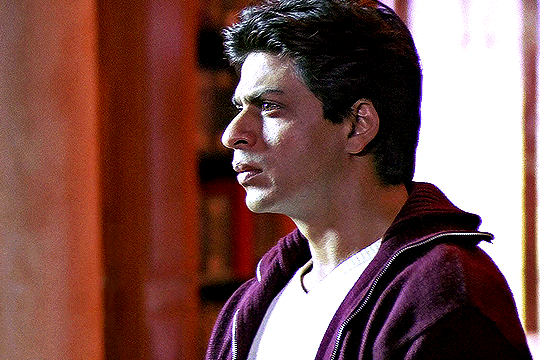
Shah Rukh Khan as Rahul Raichand
Kabhi Khushi Kabhie Gham… (2001) dir. Karan Johar
187 notes
·
View notes
Text
I did not have high expectations to begin with, but I am genuinely blown away by how much I despise NATLA. Every moment reeks of cynical corporate cowardice. "We can't have Sokka be sexist, people will think we're endorsing sexism!" "We can't have Katarra be angry, people will think she's a nag!" "We can't have Aang abandon his responsibilities on purpose, people might think he's bad or flawed instead of the perfect good hero!" Just, decision after decision that demonstrates not only a complete misunderstanding of the source material, but a lack of understanding of, like, stories in general. Of why they work. Of why we even bother to tell them. Every decision made in NATLA feels like it was born in a board room and designed to make the characters and world a more palatable product, something they could more easily sell, something that will go down smooth and not offend anyone. Well, newsflash, assholes; I'm pretty fuckin' offended, and I'm not alone. You're too cowardly to give your characters flaws they need to work to overcome, but you have no problem showing a genocide onscreen, that's fine. Character development is bad! Let's replace it all with pointless action scenes and the dryest, most sleepily delivered exposition in the history of film! Fun? We can't show our characters having fun. Fun is for children. What's that? Our characters are children? Well, too bad, our target audience is people who liked Game of Thrones, so those kids are just gonna have to learn to be miserable.
Alright, I gotta stop talking about this or I'm going to choke someone, possibly myself.
239 notes
·
View notes
Text



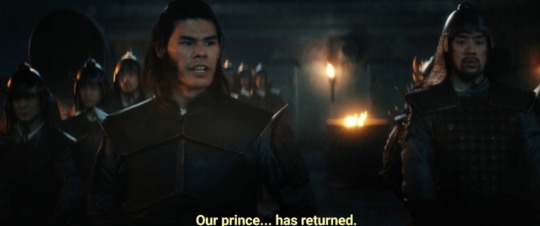

412 notes
·
View notes
Text
I watched the Netflix adaptation of ATLA today and being a hardcore fan of the OG series who knows every nook and cranny of the ATLA world, here’s my unbiased and truly honest review (It contains both the negatives and positives of the series, so dear reader please enter to read at your own risk).
Firstly, let’s talk about the wonderful additions to the already magical world of ATLA.
1. The depth of the genocide
Well, I always wanted to know how the air nomads were suddenly wiped out and how it would have been for them? Why didn’t they resist? I got my answers in the first episode where we explore how the unhinged power of the comet was “actually” used to create a genocide on a massive level. Before that, I had only heard about it in the OG series. Those few scenes were so powerful that they had left me sobbing uncontrollably and Gyatso’s concern regarding Aang had me bawling.
2. Suki’s Characterization
In the OG series, we do find our Suki the fiercest warrior, but here in the live action, she’s an absolute goddess. She is perfect in every sense. She understands the responsibilities she has being a non-bender and is fearless. Her character is what I believe to be was the strongest one of all.
3. Graphics & Music
We never talk about a film by M.Night (that didn’t happen), but this one is really a visual treat for you can readily set yourself up for some mind-blowing bending scenes, plus the fight scenes are quite impressive. It seems that the VFX team had really done their homework this time. Plus, both Momo and Appa are so freaking cute. I loved the fluffy Appa. Good work over there. The revival of the OG theme is also a highlight plus the sun warriors’ chanting in the end is given a new but intriguing twist. The background music especially in scenes where Aang unravels his Avatar powers is mystical in every aspect.
4. Life in motion
I don’t know about others, but I have always been a sucker for animation as well as live-action where characters are operating even in the direst of the circumstances. Life is there and even after they know what happened a hundred years ago, they are still trying to believe and regain their past confidence. This is beautifully portrayed and I was very much impressed by the way people are continuing their day-to-day activities even in the middle of a crisis.
Overall, the series serves the purpose of an adaptation carrying its unique colors (at least better than the previous live-action disaster that didn’t happen).
Now let’s move to the bad side, and when I say it’s honestly what I felt, you need to take my word on it being a hardcore Atla fan.
1. Weak writing & lots of exposition
ATLA remains at a 9.2 IMDB rating even after years because of its writing, strong plot, and very few plot holes. This time, the writers are the real amateur ones. Despite addicting more to the already flourishing universe of ATLA, sadly, they killed the quest of the viewer to find answers. There is too much exposition. It seems that every character just wants to see the end of the war and keeps on revealing things after things. Plus, some of the OG moments that were the soul of the series are not even included. The way Aang finds Momo and then decides to keep it with him as a last remnant of their bygone air nomad civilization is nowhere to be found. In fact, the replacement of Roku with Kyoshi is the biggest disappointment. I love Kyoshi like no one else but that was unnecessary as per the cycle.
2. Bland acting
Even the worst writing shots can be digested only if the acting appears real good. Sadly, this is another issue that I found with the NETFLIXED version. No doubt the characters must have done a lot of hard work for this, yet, they lack the expressive power. Gordon as Aang is super cute but the goofiness is not even there. Katara seems a nerd who doesn’t like to talk much even when it’s necessary and Sokka’s jokes are forced. Meanwhile, Dallas seems to save the day at one point, but again his over-the-top angry young man attitude ruins it for me. Maybe the actors will learn from the criticism in the upcoming season (if Netflix plans to go with it).
3. Major changes
Yes, it’s okay to change the narrative while you are working on an adaptation, but targeting the loyal viewers who are OG fans of ATLA means that you have to be very careful when you are trying to implement your changes in scenes that are the real soul of the OG. You can’t change the Omashu myth as if it’s nothing when we actually see even the cute animated version of the folklore. You cannot portray Roku more as a perpetrator of the genocide and Bumi as the evil king when in truth he’s the mad king who’s known for his genius ways of teaching. I hated that. Plus, reducing Zhao’s authority and taking Uncle Iroh’s sarcastic attitude is just meh. Mai again doesn’t even seem perfect as a cast. Jet is good as far as the aesthetics are concerned but Jet being in Omashu doesn’t even sit right with me. The amalgamation of multiple storylines creates so much confusion and this persists till the end.
4. Bending at convenience
We all know how Katara’s bending progressed throughout the first season and it’s little effort each day. However, in series, one day she’s unable to bend even a droplet of water and the next day she is capable of producing ice crystals. This was unacceptable for me because I was anticipating her learning strategies. Besides, Aang doesn’t learn much water bending throughout this season and in the end, it’s him being the savior in Avatar state. Thoughtless bending sucks despite the great VFX and that’s one thing at which you can’t convince me otherwise.
5. Forced friendships
We all know how it took some time for Sokka to embrace Aang as a chum. However, here Sokka keeps on calling him “the kid” and remains mostly alienated from Aang. Talking to Katara, then she also seems more interested in helping Avatar fulfill his goal than being with a friend. I hated the scene where Aang comes into the Avatar state and instead of hugging him just like in the OG series, Katara runs along Sokka and keeps on calling his name. How is that going to build any organic friendship? I think the first mistake began right from the very moment when Aang was taken back to Wolf Cove on a boat in his unconscious state. Upon opening his eyes, the first person he finds near him is neither Katara nor Sokka but a tribesman who’s playing guessing games. Writers were really high when they wrote that.
6. Lack of the four nations’ biodiversity
Maybe in live action, it’s difficult to create all the marvels of the four nations when we talk about their natural biodiversity. In the OG series, it is indicated by Aang that even after 112 years, he has still not forgotten the animals that define different regions in the four kingdoms and that’s exactly why he wants to finish those “important tasks” alongside saving the world. His important tasks included keeping a check on the natural biodiversity of the lands and exploring whether the Hundred Years’ War had not damaged the majestic animals. Actually, his first dialogue right after regaining consciousness is to go for an otter penguin’s ride with Katara. When I thought about that I felt that somewhere in Aang’s mind he was always connected to nature and that’s why he wanted to regain that connection by being an avatar. Sadly we never see much of the biodiversity but I hoped that maybe they will.
Also, how come Aang had that silent whistle for one hundred years when in the series he only discovers that accidentally? I missed the OG Yip Yip for our Appa. There are lots and lots of problems with the Netflix version, and no I am not being a nitpicker. I appreciate how the current creators credited the original ones, but now I know why Bryan and Michael bade farewell to this project. On a scale of 10, it’s a 4 for me or 4.5 if I am being too generous.
If I am asked to review the live action in a single line, I would only say this:
“The Netflixed ATLA makes you go back to the OG series and you end up watching the animation to give your mind a much-needed respite from a carefully crafted artistic disaster aimed at the sensationalized generation.”
158 notes
·
View notes
Text
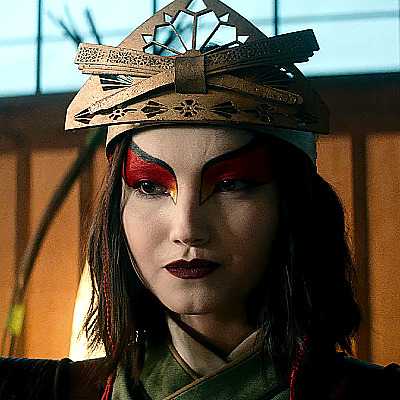
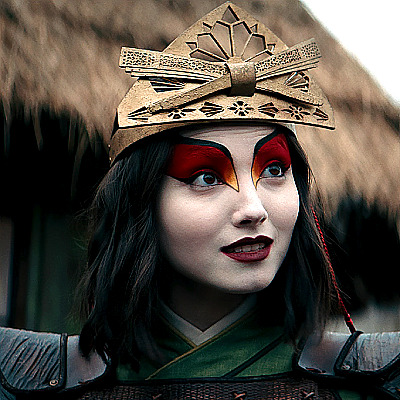
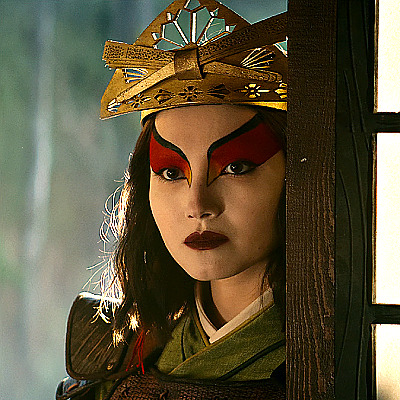


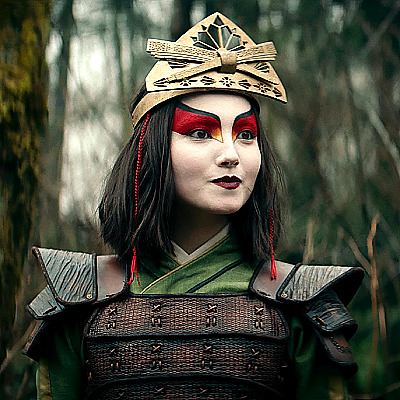
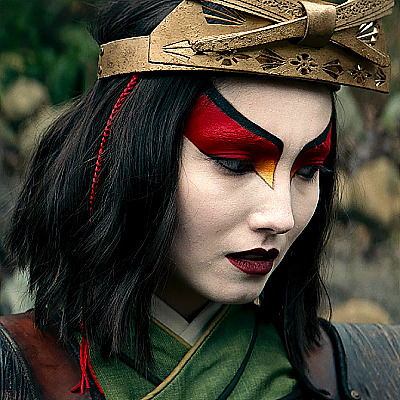
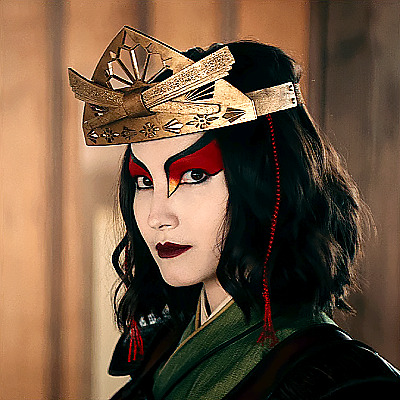
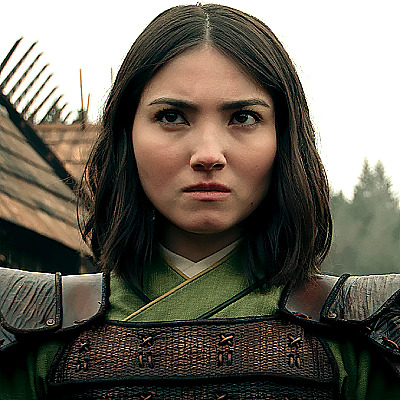
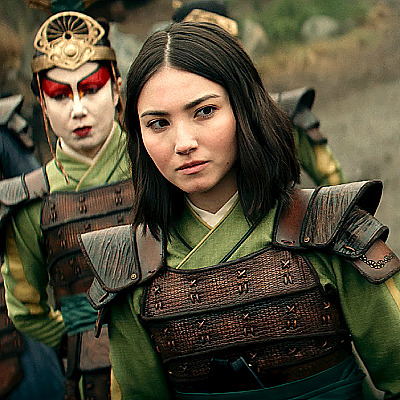
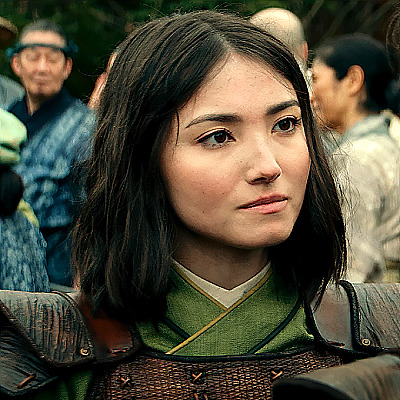
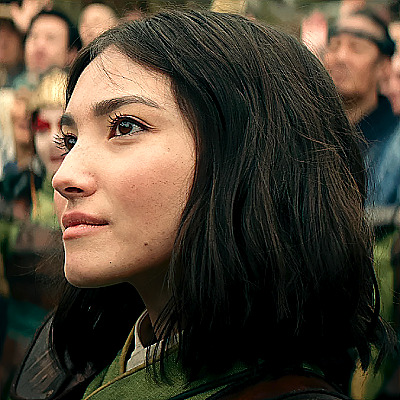
AVATAR: THE LAST AIRBENDER (2024) Warriors - 1x2 dir. Michael Goi.
826 notes
·
View notes
Text
I wrote about this a little last night but I really wanna talk more about how they shifted the focus of Zuko's arc in the live action ATLA and how it does a disservice to both his and Azula's arcs.
In the original, Zuko's quest for the Avatar and his motivating factor there was always about reclaiming what he had lost. His honor, of course, but also his family and his life in the Fire Nation. That's a large part of why the end of season two hits so hard. Zuko had finally been starting to realize that his uncle was his true family and that he could be happy outside of the Fire Nation. But then when given the choice, he threw that away in the hopes of reclaiming what he thought he truly needed to be happy, his family and his home. And then in season 3 he came to realize that he wasn't happy in the Fire Nation and any sense of familial love and affection he had thought he would receive didn't come. Everything that he thought he had wanted hadn't fulfilled him in any way. So he decided to follow his heart, leave it all behind, and do what he thought was right and good, just as his uncle had taught him.
The show ATLA pivots the focus of Zuko's quest to be less about regaining his honor and more about regaining his power. He constantly mentions things like "I'm still the heir to the throne right?" and about him being able to regain his rightful place as a prince of the Fire Nation. He never once mentions restoring his honor so he can go home.
At the same time, the show introduces Azula early to foment this power rivalry between the two, with Ozai pulling their strings. Even Ozai's original reasoning to banish Zuko was shifted from being about respect and honor to being about toughening Zuko up and pushing Azula to be stronger at the same time. Ozai intentionally manipulated this power rivalry between the two of them to try and make them "stronger".
But what gets me is not only was Zuko's quest never about power in the original, but Azula's rivalry with Zuko in the original was also never about power? It was about her mommy issues, and the fact that their mother loved Zuko more than her and viewed her as a monster. That's extremely evident when she starts having her breakdown towards the end and apparitions of her mother start appearing before her. She only ever viewed power as a way to keep people from leaving her, not as something she deeply desired. She never truly got to experience unconditional love as a child, and so the only way for her to feel loved and admired was for her to demand it out of others.
The original Zuko/Azula rivalry was never ever not even for a second about power. It was about love. And that is such a harder thing to write well, a sibling rivalry about love. It's easy to throw a throne between them and have them fight over it. It's much harder to write a story where the two of them are competing over the love they both wish they'd had. Zuko always wanted for his father to love and respect him. Azula always wanted for her mother to love and respect her. Both felt voids within them that they thought they could fill in their own ways, and took out their frustrations out on each other and on those around them.
In the end, Zuko filled the void in his heart with good friends and the uncle who had always treated him like a son. Azula crumbled and lost control the second her friends betrayed her. She had thought she had filled the void in her heart, but it had always had a weak foundation, and the second it started crumbling, it took Azula with it. Her friends never loved her. They only feared her.
This is why Zuko won their agni kai in the end. He had the love of his friends and family on his side, keeping him strong. Love is stronger than fear, that's the message in the end.
So, that's why I'm pissed they're making this more about power. I know there are opportunities in later seasons for them to backtrack this and fix it, but even if they do I feel like the damage is already done. The message is tainted with whispers of power when in the original that was never a thing. It was always always about love.
498 notes
·
View notes
Text
ATLA Live Action Series Review:
The Good
Aesthetically this show felt right. Sure sometimes the outfits didn't quite feel lived in, but I always felt like I was watching a fantasy world with decent effects and interesting design. Also, I really enjoyed the sets!
Bending: Yes some of the fights feel very quick, but the bending looks cool. It is certainly better than 10 benders lifting one big rock. I can honestly say the opening bending fight scene gave me so much hope for this show.
Kyoshi Warriors: I loved seeing them in live action, and I thought Suki's performance was great!
Omashu: I think the mashup of the mechanist made sense since that is an important character overall and I would hate to see him cut. However, both Jet & the secret tunnels felt sloppily thrown in.
Northern Water Tribe: I really loved the way it looked, and appreciated the two episodes we spent here. I think Yue gained more agency in this interpretation, and why shouldn't the moon spirit be a waterbender. Also, episode seven felt the most in tune with the original show's spirit.
Zuko: I think he was one of the most fleshed-out and best parts of the show! Dallas Liu really captured Zuko's spirit, and the scene between him and Aang in episode 6 was wonderful!
Soundtrack: Hearing the original soundtrack bits is always great, and when I first heard the ending music I was so excited.
Is the show perfect, no - but I wouldn't mind a season 2.
The Bad
Pacing: Turning 20 episodes into 8 was bound to lead to some cuts...but oftentimes times things felt too quick or disjointed. I think there were editing problems contributing to this for sure, but sometimes things skipped around too much without a clear purpose as to why. Also, why bring in plots from later seasons when you barely have enough time already?
Writing: This show definitely suffered from exposition dumping, though it did get better as time went on. I think the biggest example of this is actually opening in the past rather than the present. We do not get to learn along with Aang that the world has changed, instead, we get to learn that 100 years have passed....which doesn't hold the same tension or worldbuilding.
Clunky Dialogue: Along with exposition, clunky dialogue is another example of bad writing. I think sometimes I felt like the acting was kind of meh in the beginning, but then over time I began to realize it had far more to do with the lines characters were trying to deliver. The actors themselves are not bad, just cursed with awkward writing and lines that feel out of touch with the setting they're in.
Main Trio: I don't entirely know that I believe Katara, Sokka, and Aang are friends as opposed to 3 people stuck together to save the world. Aang feels a little too somber for a young kid running away from his responsibilities, Sokka is protective, but not exactly the heart of the team, and Katara is sort of just there until the last two episodes. Where is her struggle, her desire to learn so strong she steals from pirates? Also, while Gordon Cormier did a great job, Aang does zero waterbending on his own, is overly serious, and tells Katara not to fight. Where is his desperation to protect his friends? It feels like they all lost emotional depth.
Tension: Bringing Ozai, Azula, and Zhao out in the beginning immediately causes us to lose the realization there is an even bigger bad. Part of why Ozai is so terrifying is he is a primarily silent villain until the third season when we finally see the face of the "big bad evil guy" behind it all. Yes, they add to Zuko's backstory, but again, they are revealing the villains too early. Azula is the antagonist of season 2 and one of my favorite characters, so I hope they do more with her in the future. Finally, Zhao is supposed to be an example of the uncontrollable nature of fire unrestrained, instead, he comes off as vaguely threatening with the supposed true power being Azula.
Characterization: While all characters are bound to lose something in a shorter show, it still felt like certain characters were more mutilated than others. I am sure there are 100 different opinions on who, but I think the biggest victim was Katara.
Katara: Katara manages to go from a complete novice to a bending master in what feels like a matter of days. The journey feels short, and that makes the results feel largely unearned. Katara is one of the strongest personalities in the show, determined, kind, and fiery. In many ways, she is the unpredictability of water - equally dangerous as it is necessary to live. She is the child of a war who lost her mother, forced to grow up too soon, and even raised her older brother. Yes, Katara often gets stereotyped as the mom friend, but overall she feels underutilized in this show. We really don't see enough of her journey until the very end.
Iroh: Iroh was always comedic but most importantly wise. Even when Zuko is trying to give himself advice, he mimics Iroh. Instead, he seems to be used more as comedic relief without the underlying experience. He just doesn't feel right. Also, he kills Zhao instead of Zhao getting himself killed - which is less about Iroh and more about the writing than anything.
Ozai is weirdly a little too nice. Yes, he burned Zuko and pits his kids against each other, but he feels toned down in a show claiming to be more mature than the original cartoon.
Azula is perhaps more realistically worried about losing her status as the golden child, but she is also missing the cruelty she and her father share. I understand worrying about making your character cartoonishly evil, but the Fire Nation is currently a deeply nationalistic empire trying to control the world. Where is the deep-seated belief that they are better than other people, not just trying to bring balance to the world? There is a line between creating complexity and toning down the very real evil inherent in this plan.
Roku: I can only say what the fuck was that. He was barely there, and not the serious master to Aang's youthful exuberance.
The Ugly
Show, Don't Tell: The show's single biggest issue seems to be speeding through story parts by simply stating things. Instead of allowing the audience to discover, trusting that we are smart enough to understand, let's just blatantly say things like Zuko is the only reason the 41st division is alive to their faces. Even though in the context of the story Ozai literally already said that.... it's the division, the division for Zuko, Zuko's division.
Thematic Misunderstandings: I think this show makes several minor changes with major implications, such as airbenders actively fighting the firebenders, when airbenders are known for their pacifist nature and the lie of an Airbender fighting force is actively propaganda. Similarly, Aang very quickly accepts his role as the avatar and doesn't even run away in the beginning. Without this conflict between his desire to be a carefree child and the fact that the world needs him - the show loses a key aspect of Aang's character. Also, the obsession with downplaying the avatar state as something dangerous feels like a disservice to the tradition, connection, and strength of the avatar, which can be permanently destroyed as the trade-off for that kind of power. It's dangerous for the balance of the entire world, not just because it's powerful!
The Agni Kai: Zuko's fight against his father is one of the defining moments of Ozai's cruelty, not just because he is willing to fight his child, but because Zuko tried to do everything right. Zuko shows deference to his father, apologizes, and most importantly refuses to fight! The determination not to upset his father and still be grievously injured and banished is a hugely important theme for the fire nation and Zuko's life as a whole. He tries to do everything he is supposed to and only regains his father's acceptance after he "kills" Aang. Zuko's struggle between moral vs. social right and wrong in contrast to his family is hugely important to his character.
-----
TLDR: ATLA was a fantastical animated television show that was never afraid to show character development and flaws. When you turn 20 episodes into 8, you are bound to lose something. You hollowed out the middle, leaving the shell of important moments and events without ever wondering if all the times in between formed the true spirit of the show.
Rating: 6.5/10 It's perfectly fine and worth a watch. Not a disaster, but certainly falls flat of the original.
#I think thats pretty well describing what is good and what not#I also feel like they changed a lot of important details which revolve around the characters motivation and makes them kinda hollow#Also aang is so dang serious and just needs help all time. He cant go a single step without asking another avatar.#I really miss funny and easy moments and atmosphere the animation always let you feel.#avatar the last airbender
851 notes
·
View notes
Text
there’s a reason why the entire story of avatar the last airbender begins and ends with katara. there’s a reason why we are introduced to katara first before we are introduced to any other character. there’s a reason why katara is the narrator. there’s a reason why the creators have emphasized over and over again that katara is just as titular to the story as aang - she’s the other main character.
when you water down katara - remove her compassion, her ability to connect with others, her nurturing role, her ANGER and RAGE and DRIVE - you water down the very fundamentals of the story. you drastically and severely alter the core dynamics of the gaang, because katara was so important to the development of every single one of them. she was the rock and glue that held team avatar together.
katara was unlike any other character to ever appear on television; she was a young brown girl who took no shit from anyone, yet at the same time remained kind and compassionate and nurturing. katara was a force of nature; proud of her heritage and culture, burdened by the responsibility of being the last southern water bender of the water tribe, angered over the death of her mother and everything that the fire nation took from her, determined to help every single person in need, determined to change the world, angry and resentful because old men and rules and laws kept telling her what she could or could not do, thus, she was determined to restructure thousands of years of patriarchy that stood against her from accomplishing her goals and dreams.
watering down katara into at most 2-3 tangible characteristics, stripping her away of all her motivation and agency and nuance, telling the audience that she wants to help and change the world only to have her stand in the background with an air of grief, demonstrates that the writers of the live action fundamentally misunderstand the spirit of avatar. and that’s something so unforgivable. no matter how many changes they decide to make, or how much they decide to stay true to the original story in other areas, no matter how many flashy VFX fight scenes we get - if you fail to properly understand katara, you fail to understand the heart and soul of avatar the last airbender, everything that makes avatar such a timeless classic.
21K notes
·
View notes
Text
Nothing is more devastating than this. The UN World Food Program has officially suspended aid delivery to northern Gaza, citing violence and lack of safety as major reasons the aid trucks aren’t getting through. Israeli officers are liberally shooting at Palestinians who try to approach the trucks in hopes of getting even the smallest morsels of food, despite the fact that Israel has allowed only one crossing for the already woefully low numbers of aid they’re permitting entry. Reportedly this number has fallen from 140 a day in January to just 60 a day this month, and now 16% of all Gazan children under 2 are “acutely malnourished.” Meanwhile, the US vetoes a call for a ceasefire for the third fucking time. It’s so inhumane in its cruelty it’s actually shocking to see it being allowed to go on and on, and on an international level no less.
36K notes
·
View notes
Text
Don't forget it's still free Palestine, Congo, Sudan, Yemen, West Papua, Tigray, Haiti, Burma/Myanmar, Uyghurs, Syria, Kashmir, Cameroon, Armenia and Kurdistan.
Regardless of who you are or where you come from, if you do not feel outrage, anguish, and grief for these innocent lives lost, something is amiss, and you must consider why you lack the drive to take action.
Their fight should be considered our fight, as it is one for human rights.
18K notes
·
View notes
Note
there is another symbol of palestinian resistance that needs more traction: the spoon! the story behind it is really powerful and admirable
Yes, the Gilboa prison break that happened in September 2021. Six Palestinian prisoners used spoons to escape the maximum security Gilboa prison in Israel. They used spoons to dig a hole to escape, and then spoons became a symbol of freedom in Palestine.
There’s a small article about it on Al Jazeera which is also where I found some cool pictures showing how Palestinians use spoons as a symbol of freedom and resistance to honour the 6 prisoners
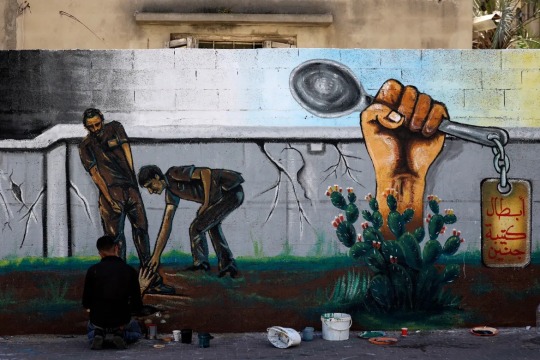
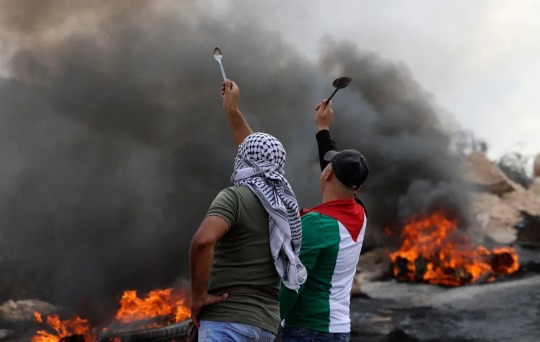
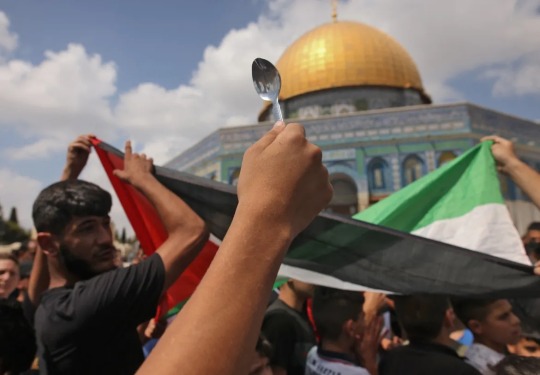
6K notes
·
View notes
Text
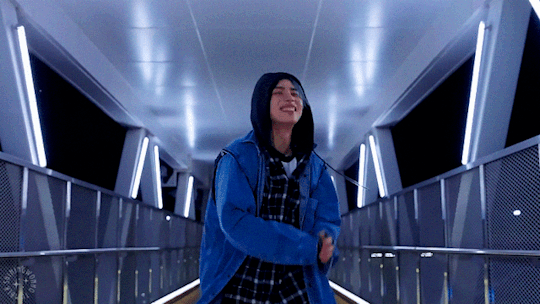
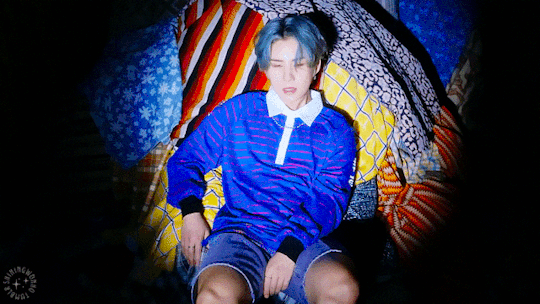
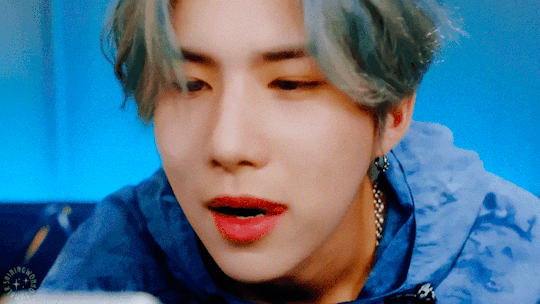
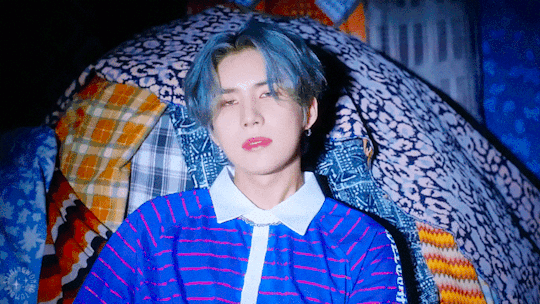
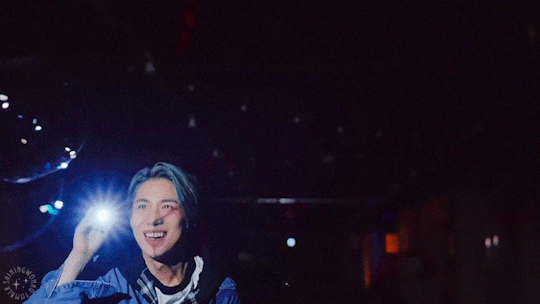
missing a.c.e hours (57/58)
wow • changer (2021)

73 notes
·
View notes
Text
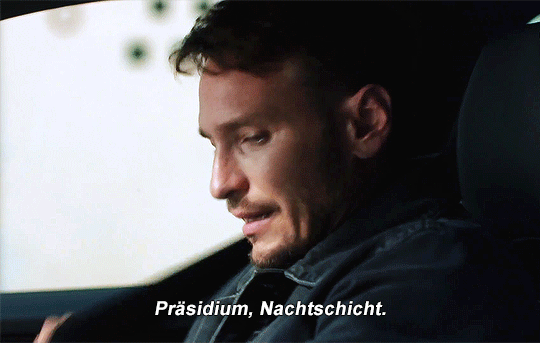
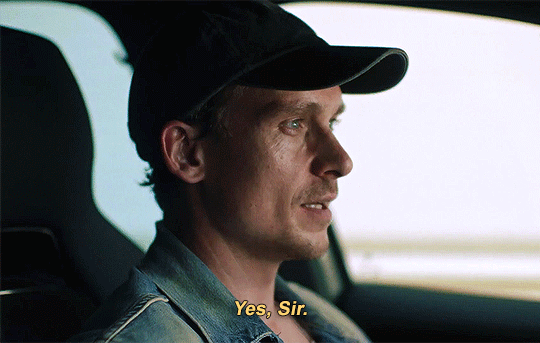
473 notes
·
View notes
Text
sehr normale Art und Weise, deinen Arbeitskollegen anzuschauen, nachdem er etwas moralisch ziemlich Graues vorgeschlagen hat
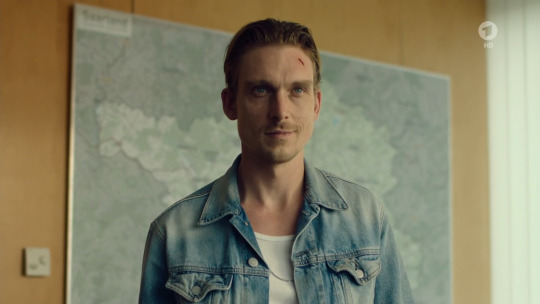
727 notes
·
View notes


